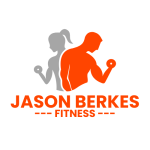Unlocking peak physical performance requires a deep understanding of the complex interplay between exercise, nutrition and recovery. A well-balanced diet, tailored to individual needs, serves as the foundation for achieving fitness goals. This comprehensive guide explores the intricacies of protein, carbohydrates and fat, empowering you to optimize your nutrition strategy and propel your fitness journey forward.
Understanding Macronutrients
Macronutrients are the building blocks of nutrition, providing energy, growth and repair. The three primary macronutrients are:
- Protein: Constructs and repairs tissues, including muscles, bones and organs.
- Carbohydrates: Primary energy source for workouts and daily activities.
- Fat: Essential for hormone regulation, energy storage and nutrient absorption.
Protein: The Building Block of Fitness
- Recommended Daily Intake: 1.6-2.2 grams per kilogram of body weight.
- Optimal Timing: Post-workout, breakfast and before bedtime.
- High-Quality Sources: Lean meats, fish, eggs, dairy, legumes and plant-based options.
- Amino Acid Balance: Essential amino acids (EAAs) and branched-chain amino acids (BCAAs) support muscle growth.
Carbohydrates: Fuel for Performance
- Recommended Daily Intake: 2-3 grams per kilogram of body weight.
- Complex Carbs: Whole grains, fruits and vegetables provide sustained energy.
- Simple Carbs: Convenient pre-workout energy from sources like fruits and sports drinks.
- Glycemic Index (GI): Balance high-GI foods (white bread, sugar) with low-GI options (whole grains, vegetables).
Fat: The Unsung Hero
- Recommended Daily Intake: 0.5-1 gram per kilogram of body weight.
- Healthy Sources: Avocados, nuts, seeds, olive oil and fatty fish.
- Essential Fatty Acids (EFAs): Omega-3, omega-6 and omega-9 support heart health and inflammation regulation.
- Hormone Regulation: Dietary fat influences testosterone, growth hormone and insulin sensitivity.
Optimizing Macronutrient Ratios
- General Fitness: 25-30% protein, 40-50% carbohydrates, 25-30% fat.
- Endurance Athletes: 20-25% protein, 55-65% carbohydrates, 15-20% fat.
- Strength Training: 25-35% protein, 40-50% carbohydrates, 20-30% fat.
- Ketogenic Diet: High-fat (70-80%), moderate-protein (15-20%), low-carbohydrate (5-10%) for specific goals.
Meal Planning and Timing Strategies
- Breakfast: Balanced meal with protein, complex carbs and healthy fats.
- Pre-Workout: Light, balanced meal or snack 1-3 hours before exercise.
- Post-Workout: Protein-rich meal or snack within 30-60 minutes after exercise.
- Snacking: Wholesome options like fruits, nuts and energy bars.
Supplements and Performance
- Protein Powder: Convenient, high-quality protein source.
- Creatine: Enhances strength, power and endurance.
- Beta-Alanine: Delays muscle fatigue.
- BCAAs: Supports muscle growth, recovery.
Real-World Applications and Success Stories
- Professional Athletes: Tailored nutrition plans optimize performance.
- Fitness Enthusiasts: Balanced diets enhance progress, motivation.
- Weight Loss: Sustainable nutrition strategies yield lasting results.
The Future of Performance Nutrition
- Personalized Nutrition: Genetic testing, AI-driven recommendations.
- Plant-Based Diets: Growing popularity, innovative plant-based sources.
- Gut Health: Emerging research on microbiome optimization.
Getting Started with Optimized Nutrition
- Consult a Registered Dietitian: Personalized guidance.
- Track Progress: Monitor food intake, physical performance.
- Experiment and Adapt: Refine nutrition strategy.
- Join a Community: Share knowledge, learn from others.
Conclusion
Optimizing protein, carbohydrates and fat is pivotal for unlocking peak fitness performance. By grasping the intricacies of macronutrients, timing and meal planning, you’ll be empowered to fuel your body, crush fitness goals and radiate overall vitality. Embark on this transformative journey, and discover the incredible potential within.

